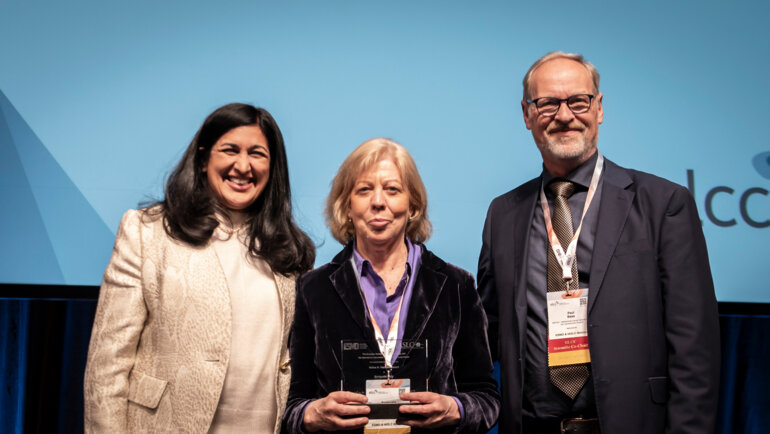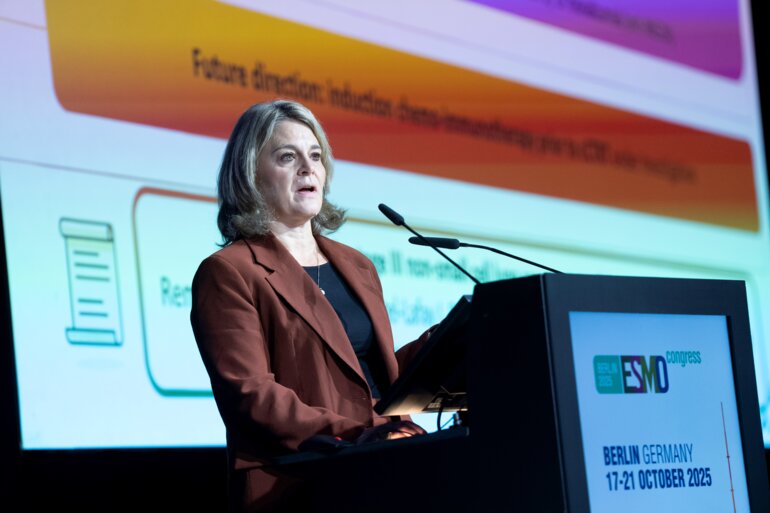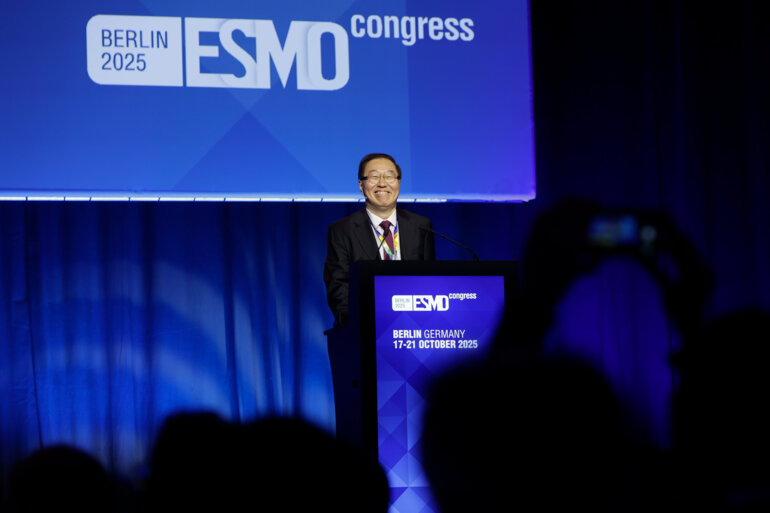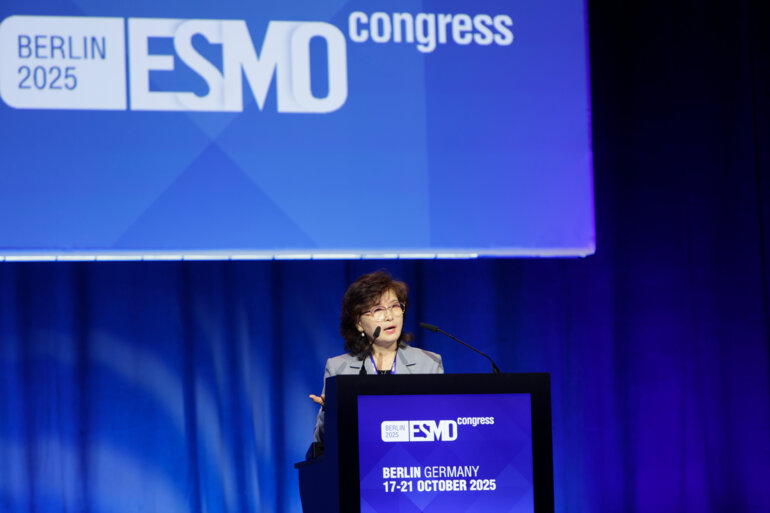Precision oncology is evolving from advanced to early-stage NSCLC, highlights Prof. Enriqueta Felip in her Heine H. Hansen Award lecture at ELCC 2024
Recognised for her significant contribution to thoracic oncology research, awardee at the European Lung Cancer Congress 2024 (Prague, 20–23 March), Prof. Enriqueta Felip, is currently Section Chief of the Medical Oncology Department at Vall d'Hebron University Hospital, Head of the Thoracic Tumours Group at Vall d'Hebron Institute of Oncology and Professor of Medicine at the Universitat Autònoma de Barcelona, Spain. In her keynote lecture, Felip discusses how the transformative effect of personalising treatment is now evolving from advanced to early-stage non-small cell lung cancer (NSCLC), with new opportunities for increased collaboration and multidisciplinary management.
How ‘precise’ has lung cancer treatment become?
In 2002, median survival was only 8 months in patients with advanced NSCLC in a trial comparing four chemotherapy regimens (N Engl J Med. 2002;346:92–98). Not long after that, in 2004, the first targeted oncogenic alteration in EGFR was identified (Science. 2004;304:1497–1500) and since then, there has been unprecedented progress in identifying and targeting new molecular alterations, and improving outcomes. Nowadays, for patients with advanced non-squamous cell carcinoma, molecular profiling using next-generation sequencing (NGS) technology is recommended to detect a wide range of druggable molecular targets including EGFR- and KRAS-activating mutations, ALK and ROS1 rearrangements, BRAF and HER2 mutations, MET exon 14 skipping mutations and MET amplifications, and RET and NTRK1–3 fusions (Ann Oncol. 2023;34:339–357). And as targeted agents for some of these alterations are now moving into adjuvant therapy, for example, EGFR and ALK tyrosine kinase inhibitors (TKIs), there is increasing emphasis on molecular testing in early NSCLC. Similarly, personalising treatment based on PD-L1 expression is commonplace in advanced NSCLC and may be becoming more important as immunotherapy expands into the adjuvant setting.
What do you consider to be your greatest achievements in advancing this field?
I have had the good fortune to participate in many studies and trials that have contributed to the rapid progression of precision oncology. In 2009, I was part of the Spanish Lung Cancer Group study that found EGFR mutations in 16.6% of patients with lung cancer and concluded that large-scale screening for EGFR mutations was feasible (N Engl J Med. 2009;361:958–967). I worked on first-generation EGFR TKIs and was subsequently part of the trial that demonstrated the value of the third-generation agent, osimertinib, in patients with acquired resistance to previous EGFR TKIs (N Engl J Med. 2015;372:1689–1699). The discovery of ALK rearrangements in NSCLC in 2007 opened up more opportunities to develop new targeted agents, and I was involved in studies with evolving generations of ALK TKIs, including crizotinib, brigatinib and lorlatinib. More recent notable highlights include being involved in the development of trastuzumab deruxtecan for HER2 mutations, amivantamab for EGFR exon 20 insertions, capmatinib and tepotinib for MET alterations, and repotrectinib for ROS1 fusions.
In early-stage disease, I am proud to have participated in pivotal trials with adjuvant immunotherapy, including the IMpower010 trial (Lancet. 2021;398:1344–1357), and also with neoadjuvant immunotherapy, including the CheckMate 816 trial (N Engl J Med. 2022;386:1973–1985).
Why and how do you believe a multidisciplinary-driven approach is key to further success?
The complexity of NSCLC as a disease and the scope for personalisation, with multiple targeted treatments available across disease stages, mean that a multidisciplinary approach is as important as ever. Regarding precision treatment, and particularly the rise in NGS, the collaboration of pathologists and molecular biologists is central to interpreting results and treatment selection as well as tackling practical issues, such as optimal turnaround times and the quality assessment of testing. Being able to integrate advances in surgical oncology and radiation oncology are other key gains from having a forward-thinking multidisciplinary team.
What do you envisage for the future of personalised lung cancer management?
I think that liquid biopsies and cell-free DNA analysis will be more widely used, not only in initial testing and the investigation of acquired resistance in individual patients, but also in determining minimum residual disease after surgery. Recognising the impact of co-mutations and how they influence treatment response and selection will likewise grow in importance. In addition, I think we will welcome even more disciplines into our teams as we further incorporate innovative technologies like artificial intelligence and multi-omics. Finally, I see the expansion of personalisation from treatment to encompass more aspects of diagnosis and prevention.








